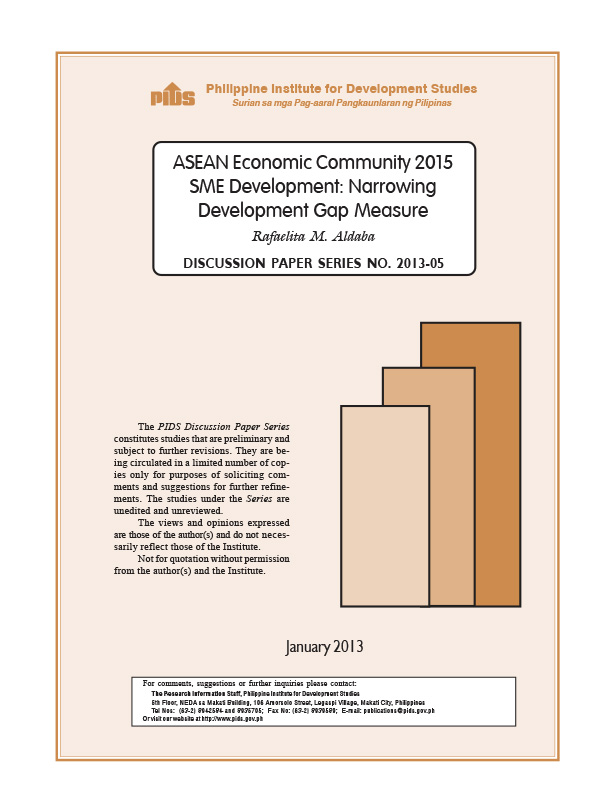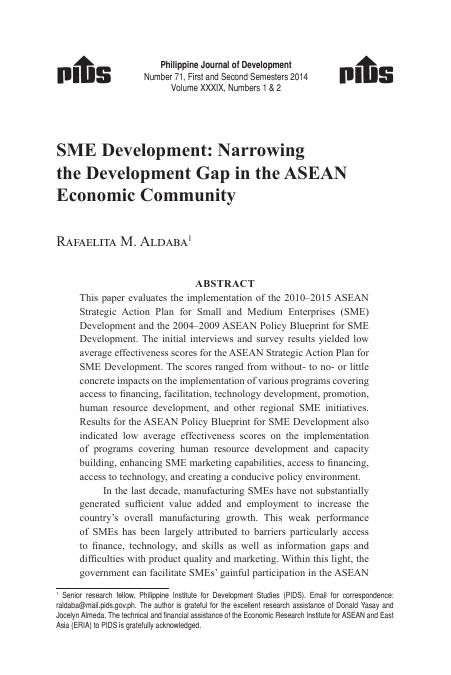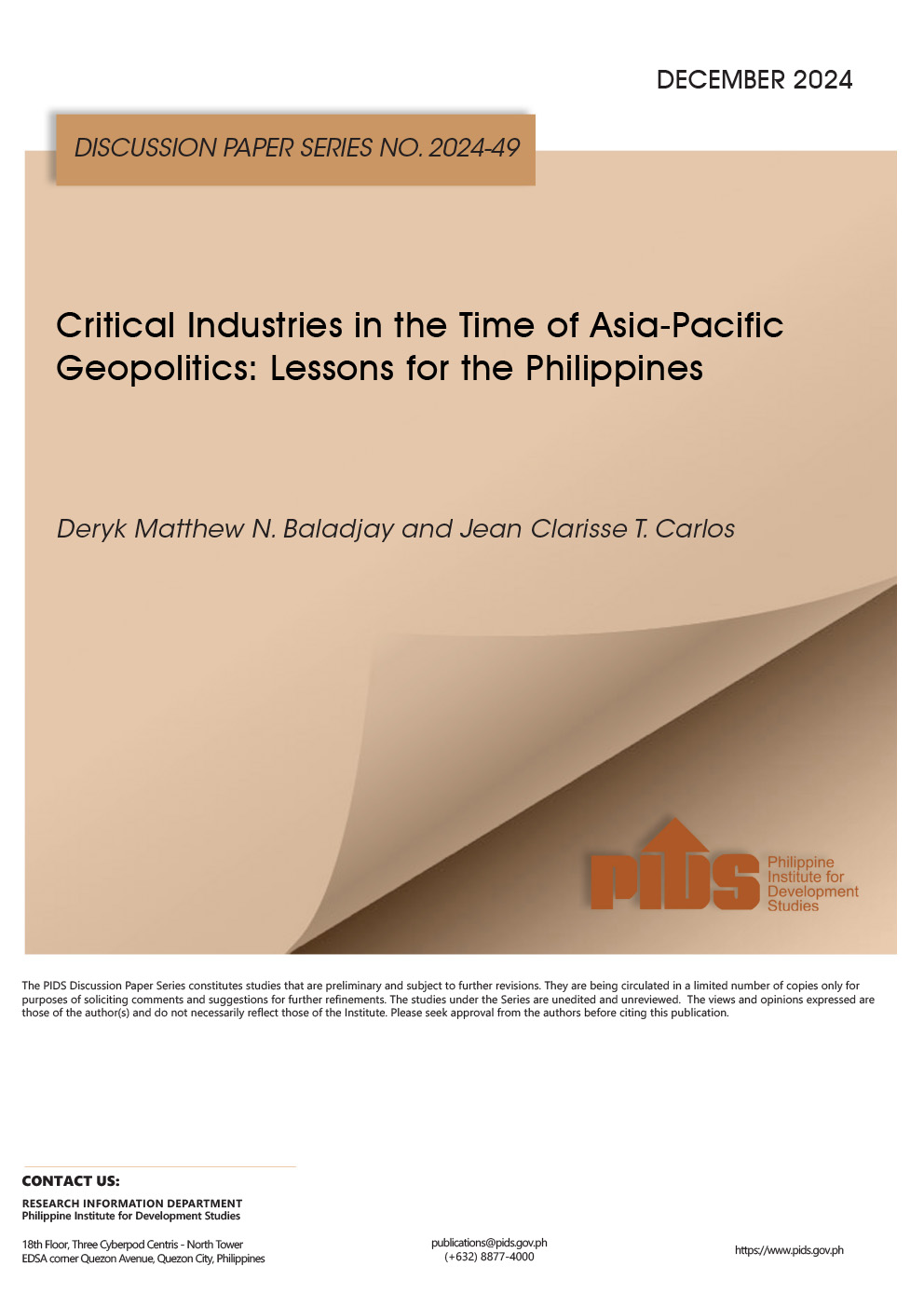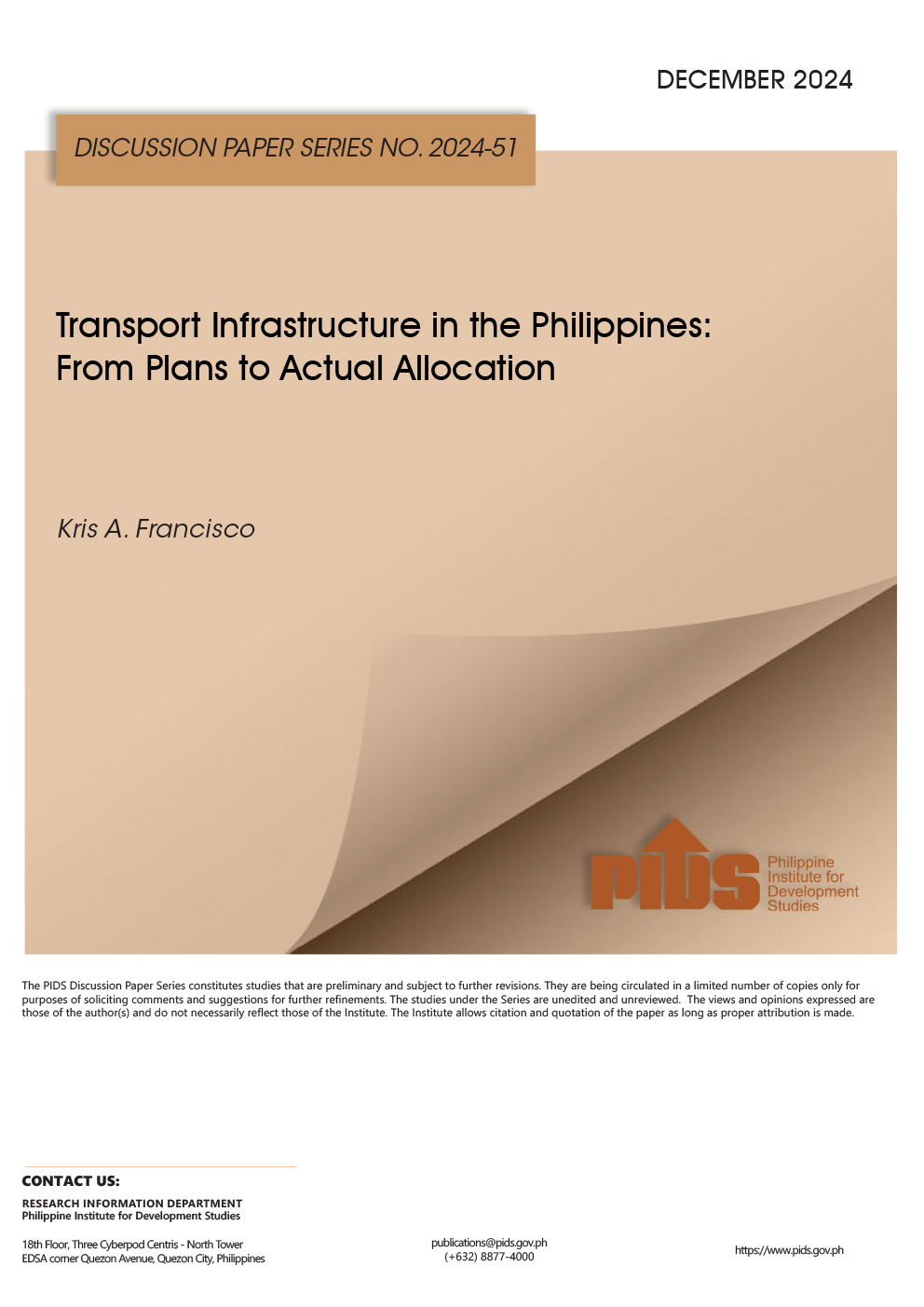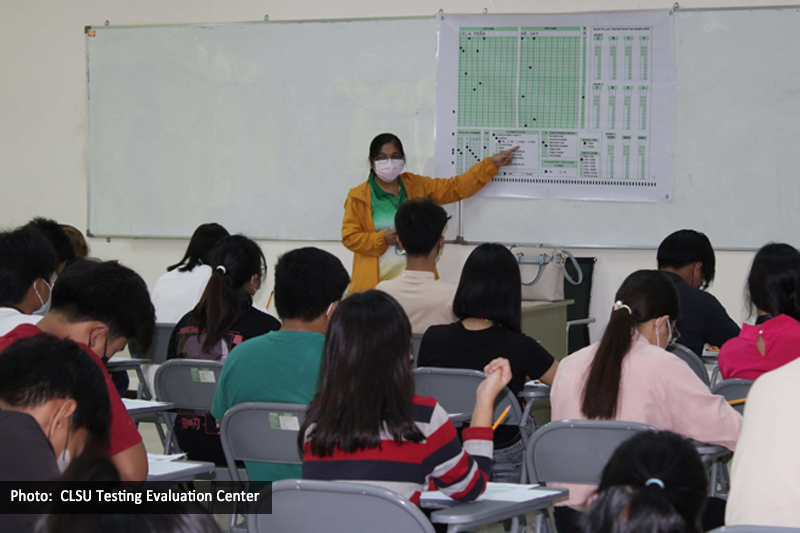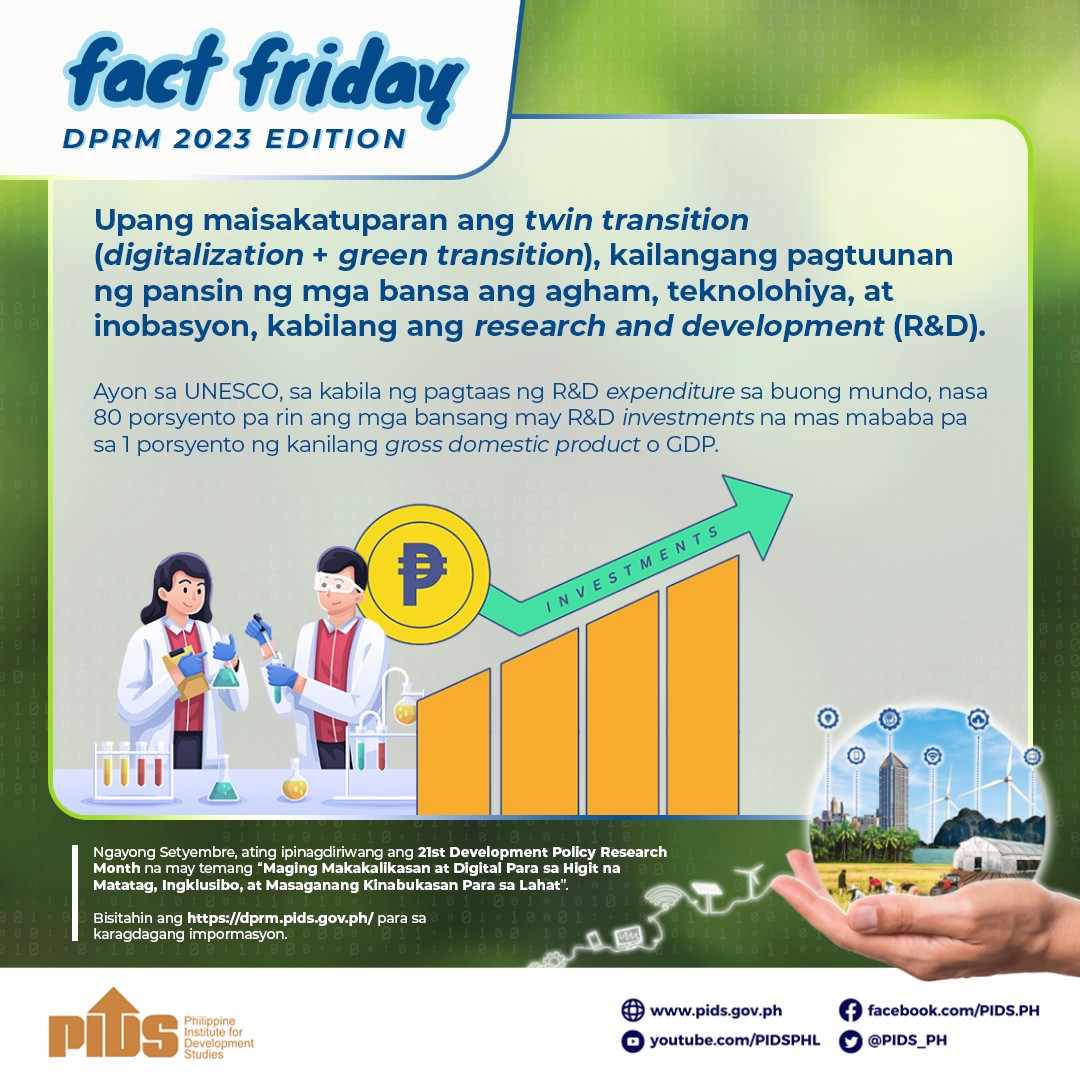This paper evaluates the implementation of the 2010-2015 ASEAN Strategic Action Plan for SME Development and the 2004-2009 ASEAN Policy Blueprint for SME Development. The initial interviews and survey results yielded low average effectiveness scores for the ASEAN Strategic Action Plan for SME Development. The scores ranged from without- to no- or little concrete impacts on the implementation of various programs on access to financing, facilitation, technology development, promotion, human resource development, and other regional SME initiatives. Results for the ASEAN Policy Blueprint for SME Development also indicated low average effectiveness scores on the implementation of programs on human resource development and capacity building, enhancing SME marketing capabilities, access to financing, access to technology, and creating conducive policy environment.
In the last decade, manufacturing SMEs have not substantially generated sufficient value added and employment to increase the country`s overall manufacturing growth. This weak performance of SMEs has been largely attributed to barriers particularly access to finance, technology, and skills as well as information gaps and difficulties with product quality and marketing. Within this light, the government could facilitate SMEs` gainful participation in the ASEAN by designing a coherent set of policies and programs; addressing financing issues; improving the technological capabilities and strengthening supply chains (to enable SMEs to move up the technology scale); and creating an enabling environment for SMEs to survive and realize their potentials to grow.
Citations
This publication has been cited 1 time
- Daway, Sarah Lynne S., Geoffrey M. Ducanes, and Raul V. Fabella. 2017. Quality of growth and poverty incidence in low income countries: The role of manufacturing. UP School of Economics Discussion Papers 201708. University of the Philippines School of Economics.

